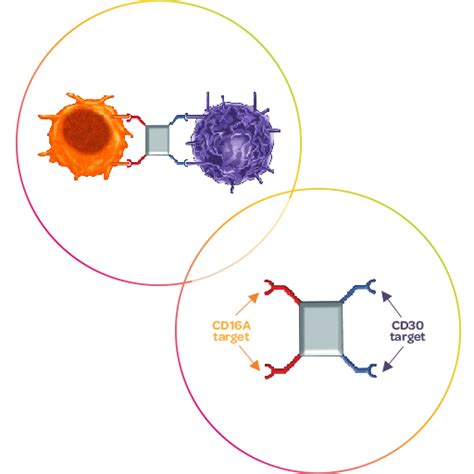Have you ever heard of a treatment that could potentially change the game for patients with lymphoma? Well, let me tell you about the groundbreaking results of a Phase I trial that may just do that. Picture this: 42 patients with lymphoma, who had undergone extensive treatments before, experienced an overall response rate of an astounding 92.9%. And not just that, but 66.7% of these patients achieved complete remission.
Now, what makes this approach so unique is the use of AFM13-NK cells complexed with a bispecific antibody called AFM13. This innovative therapy is like nothing we’ve seen before in the realm of cancer treatment. Dr. Yago Nieto, the principal investigator behind this revolutionary trial, expressed his excitement about the rapid and robust responses they observed in patients receiving this novel treatment.
“We observed rapid and strong responses to this novel approach of treating patients with AFM13-NK.”
The key to this cutting-edge therapy lies in how it targets CD30-positive lymphoma cells using pre-complexed AFM13-NK cells. By binding to CD16A on NK cells and CD30 on lymphoma cells, the bispecific antibody enables these modified NK cells to effectively seek out and destroy cancerous cells specific to lymphoma.
“These data lend to this approach being considered as a possible curative treatment for some patients.”
But hold on – let’s take a step back and understand how this all came together. The foundation for this technique was laid by Dr. Katy Rezvani, whose expertise in stem cell transplantation & cellular therapy paved the way for developing impactful cell therapies against various conditions.
The trial itself enrolled two groups: adults with CD30-positive Hodgkin lymphoma and those with T-cell lymphoma – all facing challenging circumstances having exhausted multiple prior lines of therapy unsuccessfully. The median age among participants was 43 years old, reflecting a group of individuals who had been through significant medical journeys already.
With each patient undergoing multiple cycles of chemotherapy followed by infusions of AFM13-NK cells at varying doses over several weeks, the results were nothing short of remarkable. Imagine seeing an overall response rate exceeding 90%, particularly in cases where previous treatments had fallen short.
“Our trial showed… encouraging activity…in heavily pretreated refractory CD30-positive Hodgkin lymphoma.”
One standout aspect was how well-tolerated the AFM13-NK cell therapy proved to be; there were minimal instances of adverse reactions typically associated with such treatments. This bodes well for its potential application not only in Hodgkin lymphoma but also opens doors for exploring broader applications across different types of cancers down the line.
As we look towards the future, it’s trials like these that pave new paths in cancer treatment – offering hope where options seemed limited before. Who knows what other breakthroughs lie ahead when science and innovation join forces against formidable foes like cancer?

